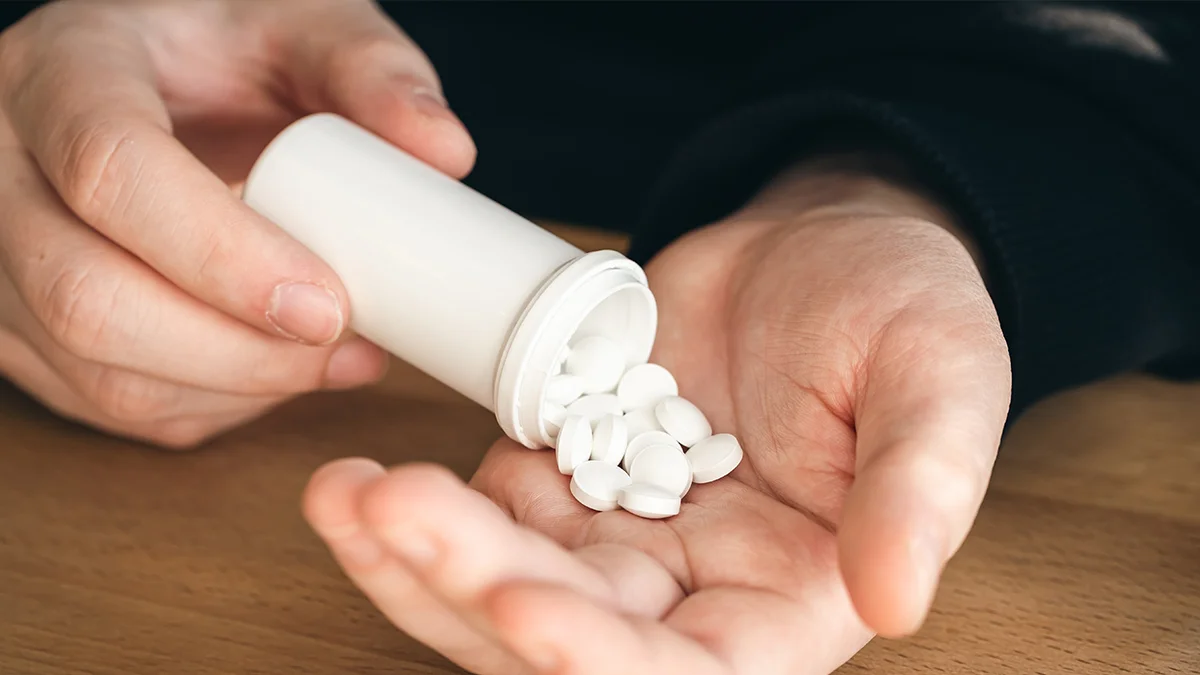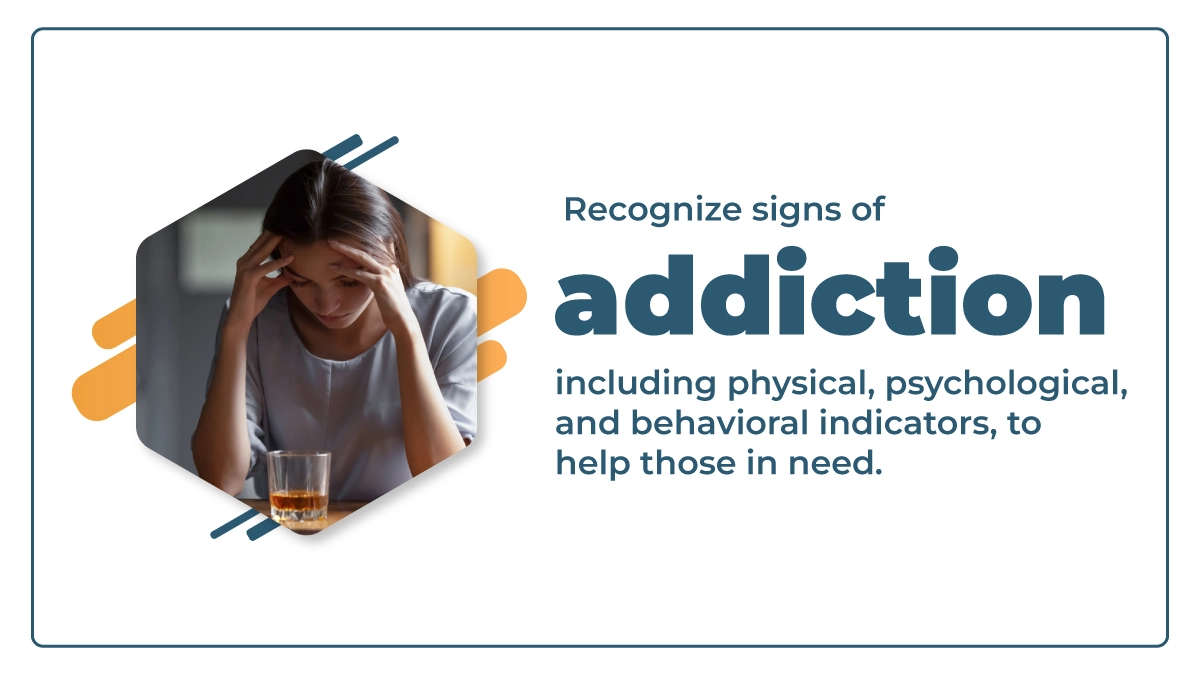
Using Tramadol To Manage Suboxone Withdrawal
Explore the role of tramadol in managing suboxone withdrawal symptoms with The Recovery Team-Newton.

Addiction is a complex and widespread issue affecting millions of people worldwide. This blog post will explore the fundamental facts about addiction to help you better understand this challenging issue.
Continue reading for clear and concise information, from its definition and common signs to the myths. Addiction is a problem that can touch anyone, making it important to be informed.
Addiction is a powerful craving for something harmful, affecting both the brain and behavior, and can involve substances or behaviors like gambling. Here’s what you need to know:
Discover a sober tomorrow with The Recovery Team-Newton, where healing, support, and a path to recovery await you. Contact us at (508) 978-2772 today.
Addiction is a powerful pull that makes a person want something, even if it’s harmful. It’s like an intense craving that’s hard to control. People can get addicted to various things, like prescription medicines, drugs, or even behaviors like gambling.
When someone is addicted, their brain gets used to the substance or behavior, and they may need more and more of it to feel the same effect. This can lead to problems in their life, health, and relationships. Addiction is a serious matter, and it’s important to understand it better.
Knowing the science behind addiction is important. The brain plays a significant role in addiction. When someone engages in drug use, their brain gets involved. It’s like a chemical reaction. The brain starts to crave the substance, which can be powerful. This is where addiction begins.
Chemical imbalances in the brain also lead to addiction. People with substance use disorders have these imbalances. It’s not just about willpower. Their brain functions differently. This is why they find it hard to quit drug abuse or alcohol.
Age is a factor, too. Young people are more susceptible to addiction. Their brains are still developing, and substance use can harm this process. So, it’s essential to be aware of the risks. Drug addiction can involve many substances, like heroin or prescription drugs. It can also be about behaviors like gambling. When a family member has an addiction, it affects everyone.
Addiction is not just a bad habit. It’s a chronic disease. It’s like heart disease or mental illness. Effective treatments are available, but they require seeking medical advice.
Moreover, it’s not just about illegal drugs. Even legal substances, like alcohol, can lead to substance use disorders. It’s vital to be informed and support those dealing with addiction, whether to alcohol, opioids, or others. They may experience withdrawal symptoms, making it hard to quit.
Understanding the science behind addiction and its effects on the brain and behavior is crucial for helping those in need.
Identifying the symptoms of addiction is crucial to help those in need. These signs can be classified into three main categories:
Here are some common physical signs of addiction that may be observed:
Following are some common psychological signs of addiction:
Here are some behavioral signs that may indicate the presence of addiction:
By being aware of these signs, you can support someone facing addiction and encourage them to seek help.
Several myths surrounding addiction can hinder our understanding of this complex issue. Let’s debunk some common misconceptions:
Some believe that people choose to become addicted, but addiction is not a simple choice. It often begins with substance abuse and can progress to a medical condition known as substance use disorder (SUD). Addiction involves physiological dependence, making it challenging to stop without help.
Addiction does not discriminate. It affects people of all backgrounds, ages, and social situations. Stereotypes that only certain groups are prone to addiction are not accurate.
Overcoming addiction usually requires professional help. Medical assistance, therapy, and support are vital. Treatment facilities and qualified health providers can provide effective solutions for addiction, such as medication-assisted treatment.
In the United States, addiction is a significant health issue. It’s not limited to illegal drugs. Alcoholism, opioid use disorder, and dependence on prescription medications are widespread. It’s essential to debunk these myths and promote understanding and empathy to combat the stigma surrounding addiction. It is best to seek help from healthcare providers.
Addiction is a challenging battle, but various addiction treatment programs can help individuals on the road to recovery.
Detox is often the first step, which involves removing harmful substances from the body. It can be done in a specialized facility, where patients receive medical care to manage withdrawal symptoms.
Inpatient treatment is also known as residential treatment. It provides a structured environment for those with severe addiction. Patients live at a treatment center, receiving 24/7 care and therapy.
Outpatient treatment allows patients to receive care while living at home, offering flexibility for those with milder addictions.
Support groups provide a sense of community and understanding. Sharing experiences can be therapeutic.
Behavioral therapies, like Cognitive Behavioral Therapy (CBT), Dialectical Behavior Therapy (DBT), and Eye Movement Desensitization and Reprocessing (EMDR), are effective tools for addressing the underlying issues of addiction.
These treatments, tailored to the individual’s needs, contribute to the path of recovery.
Addiction alters the brain’s reward system, leading to intense cravings and compulsive behavior. This rewiring makes quitting difficult and requires professional treatment and support.
Addiction recovery is often non-linear, with relapses occurring but not defining failure. Support, self-compassion, and finding joy in life are key elements of successful recovery.
Anyone can become susceptible to addiction. Genetics, environment, mental health, and substance use can increase vulnerability. It’s important to be aware of these risk factors.
At The Recovery Team-Newton, we support you through every step of your addiction recovery journey. Our comprehensive services include addiction treatment modalities designed to meet your specific needs.
Explore our services like partial hospitalization, intensive outpatient, and outpatient programs. We also specialize in dual diagnosis treatment, addressing addiction and underlying mental health issues.
Contact us at (508) 978-2772 today and initiate the initial stride toward a future free from addiction.

Explore the role of tramadol in managing suboxone withdrawal symptoms with The Recovery Team-Newton.

Explore the basics of insurance coverage for suboxone treatment in this guide from The Recovery Team-Newton.

Explore the effectiveness of medication-assisted treatment with The Recovery Team-Newton.